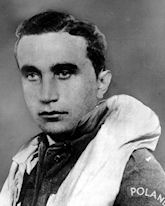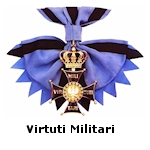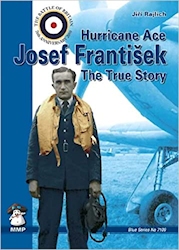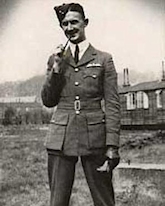
Colin Falkland Gray
(1914 - 1995)
Date of Birth: 27/02/1918
Nationality: New Zealander
Nickname: -
Career Rank: Wing Commander
BoB Kills: 15
Total Kills: 27
Colin Falkland Gray was born in Christchurch, New Zealand on 27th February 1918. In January 1939 Colin finished training as a pilot and was posted to 54 Squadron later that year.
On 25th May 1940 Colin achieved his first confirmed kill, shooting down a Messerschmitt Bf 109, although his Spitfire was seriously damaged during the combat resulting in a successful forced landing at his base in Hornchurch, at his second attempt.
His second kill was also a Messerschmitt Bf 109 which he shot down on 13th July and he also shot down a Messerschmitt Bf 109 on the 24th July 1940. A further 2 Messerschmitt Bf 109's were shot down on the 12th and 16th of August and he was awarded the Distinguished Flying Cross (DFC) on the 15th August 1940.
On the 18th August 1940, Colin shot down 2 Messerschmitt Bf 110's and by early September, during a seven week period, Colin had shot down 15 kills. 54 Squadron were then sent North to be rested after the gruelling combat during the Battle of Britain.
After a brief stay at 43 Squadron, Colin was posted back to 54 Squadron in January 1941 as a flight commander, replacing Alan Deere who had been posted. In June 1941, Colin was posted to 1 Squadron as a flight commander.
On 22nd August 1941, Colin shot down a Messerschmitt Bf 109 whilst flying as a 'guest' of 41 Squadron and was then posted to 403 Squadron and then two days later he was sent to 616 Squadron as Commanding Officer. On 20th September Gray was awarded a Bar to his DFC at the time being credited with 17 confirmed kills.
Gray was sent to 616 Squadron as C.O. in August 1941 and then in February 1942 he was posted as Squadron Leader, Tactics, to HQ 9 Group. He returned to operations in September 1942 being attached briefly to 485 Squadron for operational experience before taking over No. 64 Squadron, flying the new Mark IX Spitfire.
In January 1943 Gray was posted to 81 Squadron as C.O. based in the Middle East, flying the Spitfire Mk IX. Claiming more confirmed kills, Gray was awarded the Distinguished Service Order (DSO) in May 1943 bring his confirmed kills to 22.
In May 1943 Gray was promoted to Wing Commander taking over 322 Wing in the Italian Campaign and in June and July he claimed a further 5 kills bringing his total victories to 27. These were to be his final kills as he left 322 Wing in September 1943 to return to Britain. He was awarded a second Bar to his DFC in November 1943.
In July 1944 Gray commanded 61 Operational Conversion Unit (OCU) at Rednal and later that month was appointed Wing Commander Flying of the Detling Wing which organised operations supporting the Army in Europe and also sorties against the V-1 'Flying Bomb' which were engaged by Griffon-engine Spitfires.
After the war, Gray continued in various command and staff posts until he retired as Group Captain in March 1961 returning to New Zealand.
Colin Gray wrote an autobiography, "Spitfire Patrol", accounting his exploits in the Royal Air Force.
Group Captain Colin Gray died in Waikanae, a small town on New Zealand's Kapiti Coast, on 1st August 1995.
 "Lest we forget"
"Lest we forget"














